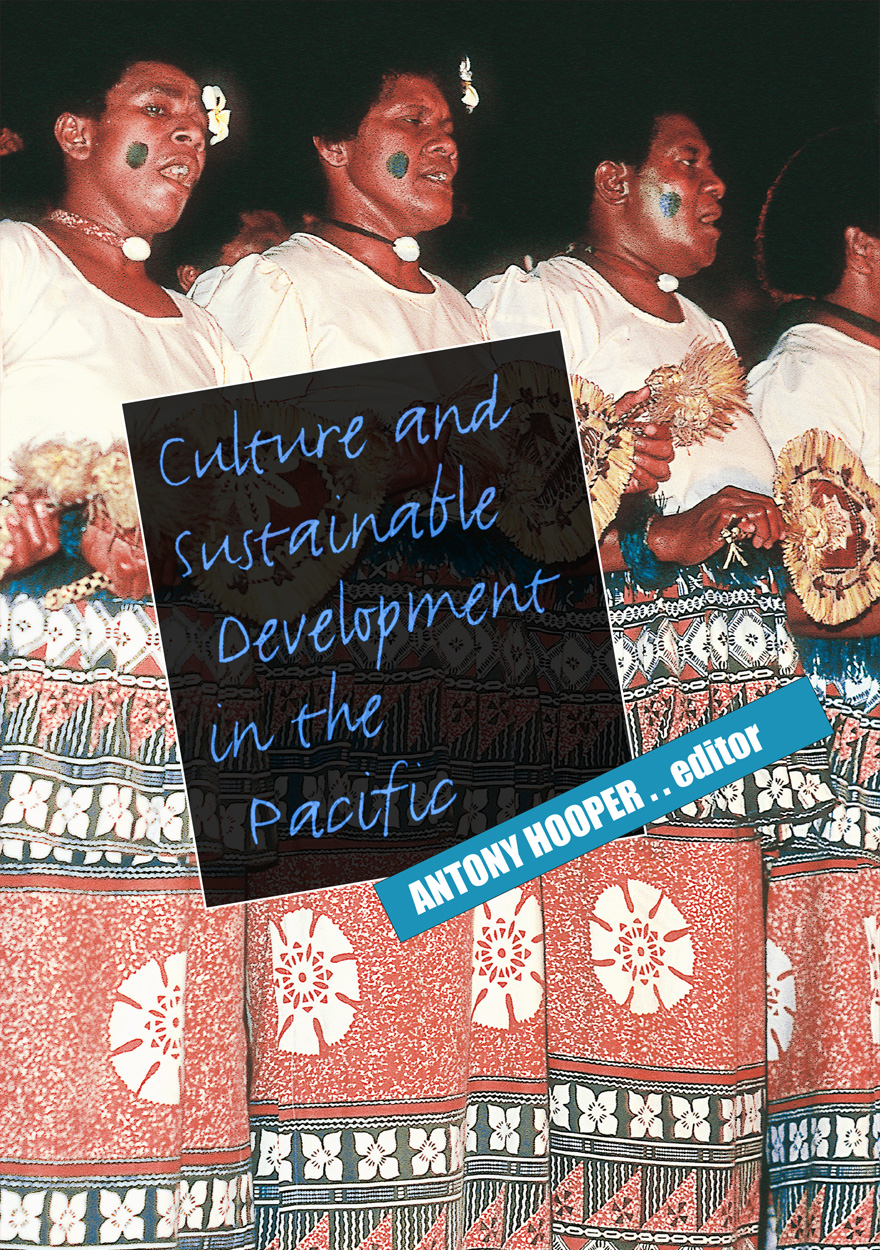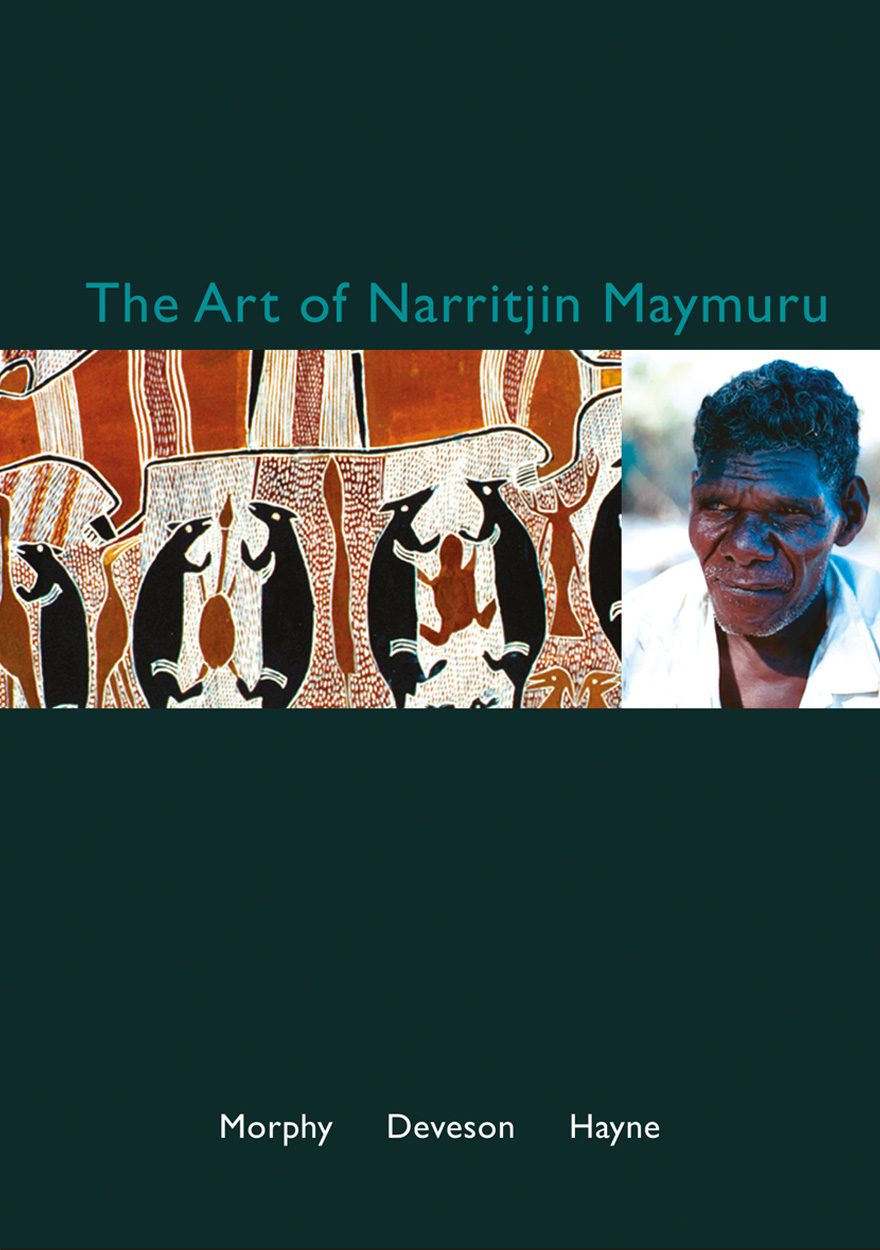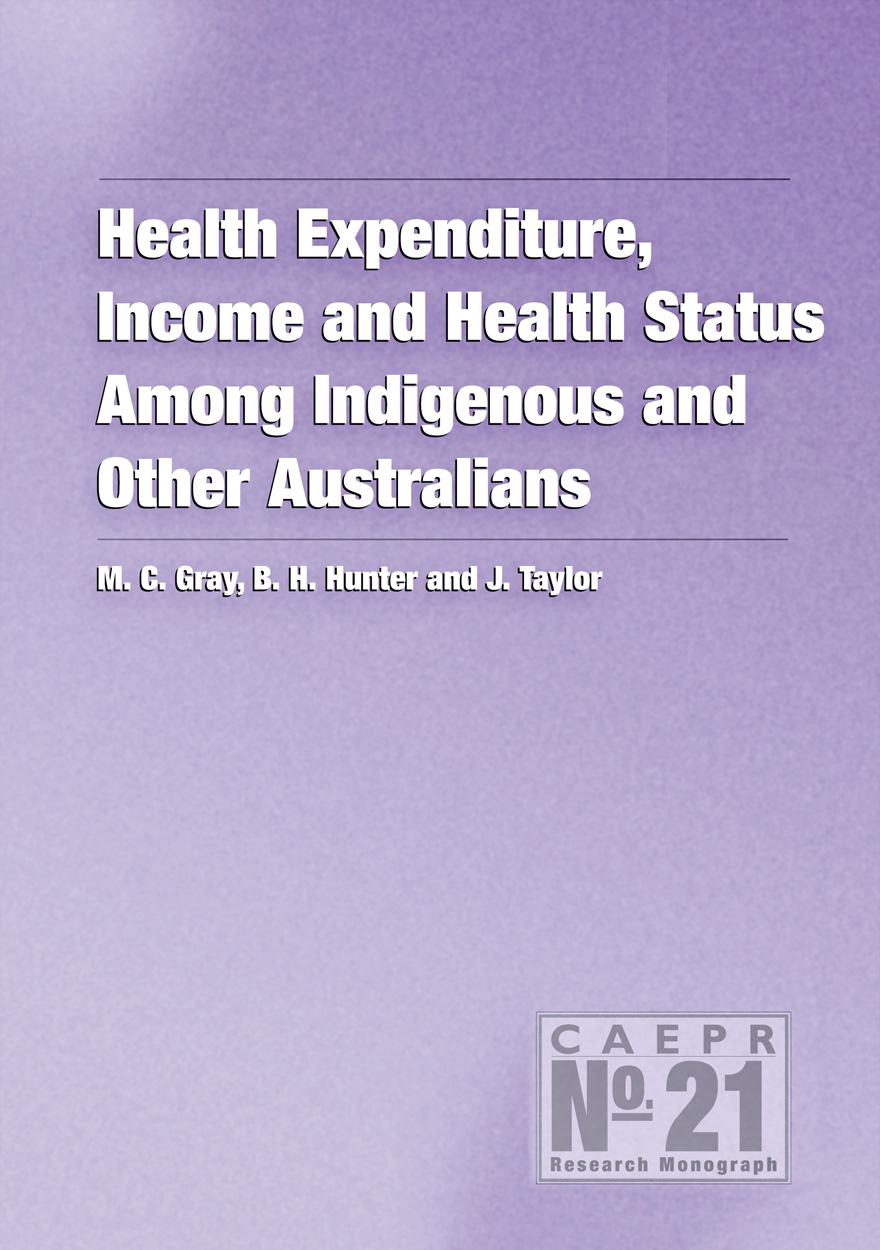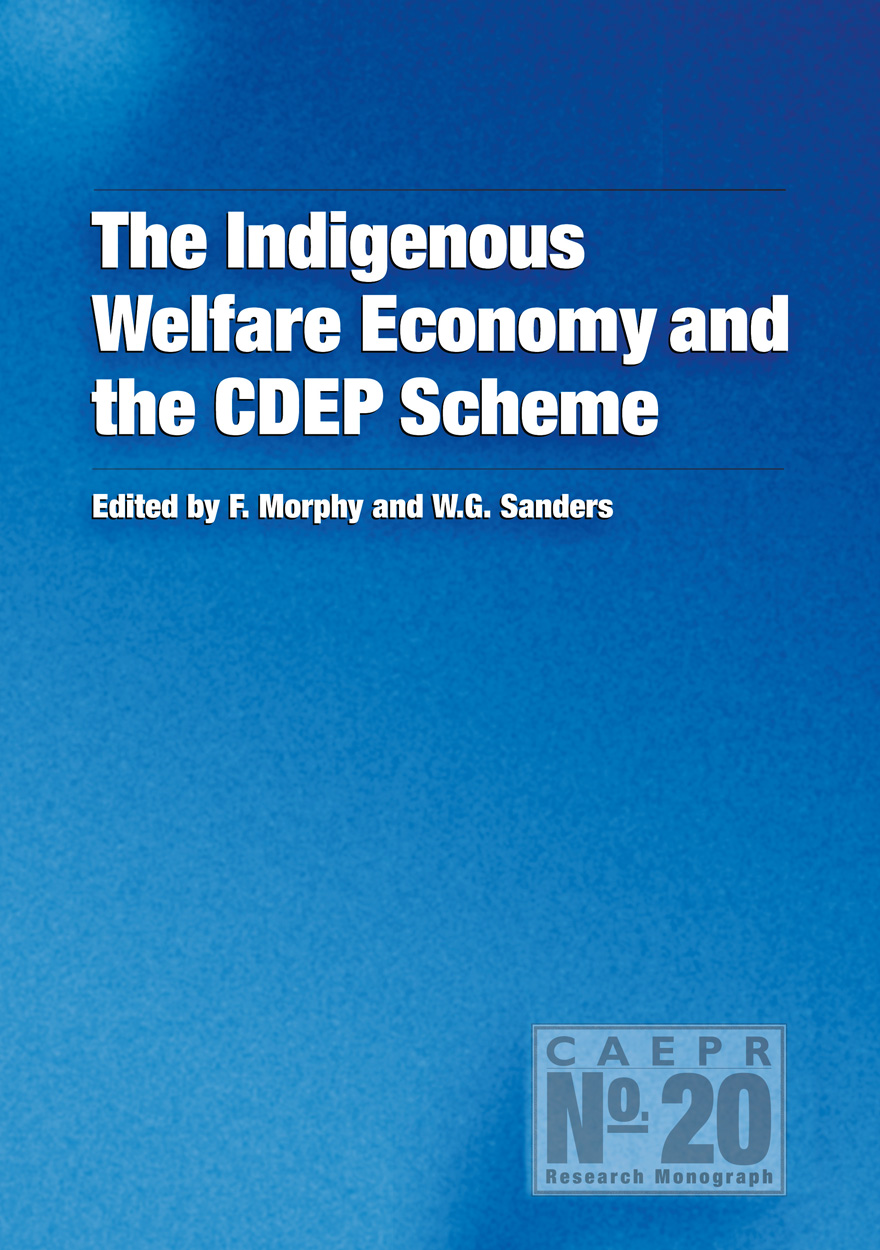Search titles
Displaying results 811 to 820 of 852.

Ethics and Auditing »
Edited by: Tom Campbell, Keith Houghton
Publication date: June 2005
Ethics and Auditing examines ethical challenges exposed by recent accounting and auditing ‘lapses’ through a study of interconnected moral, legal and accounting issues. The book aims to engage a broad readership in the discussion of audit failure and reform.
With its range of intellectual and practical perspectives, Ethics and Auditing provides critical analyses of auditor independence, conflicts of interest, self-regulation, the setting and enforcing of auditing standards, and ethics education.

Culture and Sustainable Development in the Pacific »
Edited by: Antony Hooper
Publication date: April 2005
Throughout the South Pacific, notions of ‘culture’ and ‘development’ are very much alive—in political debate, the media, sermons, and endless discussions amongst villagers and the urban élites, even in policy reports.
Often the terms are counterposed, and development along with ‘economic rationality’, ‘good governance’ and ‘progress’ is set against culture or ‘custom’, ‘tradition’ and ‘identity’. The decay of custom and impoverishment of culture are often seen as wrought by development, while failures of development are haunted by the notion that they are due, somehow, to the darker, irrational influences of culture.
The problem is to resolve the contradictions between them so as to achieve the greater good—access to material goods, welfare and amenities, ‘modern life’—without the sacrifice of the ‘traditional’ values and institutions that provide material security and sustain diverse social identities.
Resolution is sought in this book by a number of leading writers from the South Pacific including Langi Kavaliku, Epeli Hau’ofa, Marshall Sahlins, Malama Meleisea, Joeli Veitayaki, and Tarcisius Tara Kabutaulaka. The volume is brought together for UNESCO by Antony Hooper, Professor Emeritus at the University of Auckland. UNESCO experts include Richard Engelhardt, Langi Kavaliku, Russell Marshall, Malama Meleisea, Edna Tait and Mali Voi.

Aboriginal History Journal: Volume 29 »
Publication date: 2005
Since 1977, the journal Aboriginal History has pioneered interdisciplinary historical studies of Australian Aboriginal people’s and Torres Strait Islander’s interactions with non-Indigenous peoples. It has promoted publication of Indigenous oral traditions, biographies, languages, archival and bibliographic guides, previously unpublished manuscript accounts, critiques of current events, and research and reviews in the fields of anthropology, archaeology, sociology, linguistics, demography, law, geography and cultural, political and economic history.
Aboriginal History Inc. is a publishing organisation based in the Australian Centre for Indigenous History, Research School of Social Sciences, The Australian National University, Canberra.
For more information on Aboriginal History Inc. please visit aboriginalhistory.org.au.
Download for free
Not available for purchase

The Art of Narritjin Maymuru »
Publication date: January 2005
Narritjin Maymuru led a life that was as extraordinary and adventurous as that of any Australian artist of the twentieth century. Howard Morphy, with the help of Pip Deveson, has scoured the collections of museums, art galleries and private collections around the world to bring together an archive of Narritjin’s paintings and carvings spanning nearly forty years of his work.
The Art of Narritjin Maymuru enables you to explore his art. You can begin either by following the timeline that summarises the main biographical features of Narritjin’s life or by moving straight into the sets of paintings.
The Art of Narritjin Maymuru is currently unavailable for purchase due to technical issues. We hope to offer an online version of this work in the near future.
CD currently unavailable. We apologise for any inconvenience.
Reviews of the publication
Francoise Dussart, American Anthropologist, June 2007, Vol. 109, No. 2, pp. 363-364
John E. Stanton, Australian and New Zealand Journal of Art, Volume 7, Number 2, 2006
Charlotte Townsend-Gault, Visual Anthropology Review, Fall 2006, Vol. 22, No. 2, pp. 80-82
Not available for purchase

Social Indicators for Aboriginal Governance »
Insights from the Thamarrurr Region, Northern Territory
Authored by: John Taylor
Publication date: October 2004
John Taylor is a Senior Fellow at the Centre for Aboriginal Economic Policy Research, The Australian National University, Canberra.
The Council of Australian Governments is trialing Indigenous Community Coordination Pilot schemes around the country aimed at fostering whole-of-government approaches to service delivery and development. A notable example is in the Thamarrurr region of the Northern Territory focused on the Aboriginal town of Wadeye and its hinterland. Under new governance arrangements the Thamarrurr Regional Council has identified a need to profile existing social and economic conditions as a basis for its current planning and future evaluation.
This study provides an innovative template for such profiling. With substantial input from local people it uncovers a region of high population growth with major challenges in areas of employment, income, education and training, housing and infrastructure, health status and criminal justice. It yields a baseline of available data to assist discussions of regional needs, aspirations and development capacities. By using population projections, it shifts government and community thinking away from reactive responses to historic need, to a more pro-active future-oriented approach to development.
The Thamarrurr people view this document as an important planning tool for their people. Their aim is to have the same access to services and opportunities as other Australians. “Give every kid a chance” is their catch cry. This study lays out what is required from governments and the community to achieve that vision.

Health Expenditure, Income and Health Status Among Indigenous and Other Australians »
Publication date: August 2004
Using data from the 1995 National Health Survey (NHS) this study asks the question—what is the relationship between income, health expenditure and health status for the Indigenous and non-Indigenous populations in Australia? Income is generally seen as an indicator of ability to address the need for health expenditure, and as a factor in influencing health status. The expectation, therefore, is that income and health status are positively related.
The analysis measures differences in health expenditure and reported health status between the Indigenous and non-Indigenous populations, holding income level constant. No association is found between income and Indigenous health status. A number of explanations are canvassed. The finding may simply reflect poor data quality, both in terms of income and self-assessed health status. An alternative hypothesis, with long-term implications, is that adult mortality reflects foetal and childhood health, regardless of current income status.

State and Society in Papua New Guinea »
The First Twenty-Five Years
Authored by: R.J. May
Publication date: May 2004
On the eve of Papua New Guinea’s independence in 1975 there were many – both within the country and outside – who predicted political anarchy, with the possibility of an army coup or authoritarian single-party dominance, and economic collapse. Such fears appeared to have been justified when in 1975 both the North Solomons (Bougainville) and Papua unilaterally declared their independence. In fact, however, PNG achieved a smooth transition, and in its first decade as a new state enjoyed a high degree of political and economic progress. It remains one of the few post-colonial states that has maintained an unbroken record of democratic government.
Nevertheless, from around the mid-1980s a number of problems have become apparent, including: a decline in government capability; increasing problems of urban and rural lawlessness; poor economic management, with growing evidence of nepotism and corruption; environmental degradation associated with mining and logging, and increasing pressure on land; and, from 1988, a rebellion on Bougainville.
This volume brings together a number of papers written by the author between 1971 and 2001 which address issues of political and economic development and social change in Papua New Guinea.
Dr R.J. May is a senior fellow in the Department of Political and Social Change, Research School of Pacific and Asian Studies at The Australian National University. He was formerly a senior economist with the Reserve Bank of Australia and later foundation director of IASER in PNG (now the National Research Institute). In 1976 he was awarded the Independence Medal for his services to banking and research in PNG.

The Indigenous Welfare Economy and the CDEP Scheme »
Edited by: Frances Morphy, Will Sanders
Publication date: May 2004
In recent debates about the Indigenous welfare economy, the Community Development Employment Projects (CDEP) scheme has not been given the attention it deserves. It represents a major adaptation of the Australian welfare system to the particular social and economic circumstances of Indigenous people.
Part I of this volume contains overview papers which place the CDEP program in its wider cultural, sociopolitical, and economic contexts. The contributions in Part II address policy and policy-related issues which impact directly, or indirectly, on the structure and function of the CDEP scheme as a whole and of individual CDEP projects. Part III presents research based case-studies of particular CDEP projects in their regional contexts, drawn from the Northern Territory, South Australia, and Victoria. Part IV consists of short case studies, from the perspective of the participants themselves, of a number of CDEP organisations. These case studies provide an important perspective, taking up and providing a grass-roots view of many of the broader policy themes and concerns that are discussed elsewhere in the monograph.
The crucial issue, addressed by many of the contributions, is how Indigenous self determination and the rights agenda, which argues for the unique and inherent rights of Indigenous Australians, will sit with (or in opposition to) the ‘mutual obligation’ of the Howard government’s welfare reform. The volume thus represents a contribution to an ongoing and important debate in current Australian social policy.

The Military and Democracy in Asia and the Pacific »
Edited by: R.J. May, Viberto Selochan
Publication date: March 2004
In The Military and Democracy in Asia and the Pacific, a number of prominent regional specialists take a fresh look at the military’s changing role in selected countries of Asia and the Pacific, particularly with regard to the countries’ performance against criteria of democratic government.
Indonesia, Thailand, the Philippines, Burma, Pakistan, Bangladesh, South Korea, Fiji and Papua New Guinea all fall under the spotlight as the authors examine the role which the military has played in bringing about changes of political regime, and in resisting pressures for change.
Under the auspices of The Australian National University’s Department of Political and Social Change, Research School of Pacific and Asian Studies, and within the context of the Regime Change and Regime Maintenance in Asia and the Pacific project, the following contributors compiled The Military and Democracy in Asia and the Pacific: Emajuddin Ahamed, Suchit Bunbongkarn, Stephanie Lawson, R. J. May, Hasan-Askari Rizvi, Viberto Selochan, Josef Silverstein, Michael Vatikiotis and Yung Myung Kim. The Military and Democracy in Asia and the Pacific provides a sequel to Viberto Selochan’s earlier collection, The Military, the State, and Development in Asia and the Pacific (1991).

Black Words White Page »
Aboriginal Literature 1929–1988
Authored by: Adam Shoemaker
Publication date: March 2004
Fifteen years after its first publication, Black Words White Page remains as fresh as ever. This award-winning study – the first comprehensive treatment of the nature and significance of Indigenous Australian literature – was based upon the author’s doctoral research at The Australian National University and was first published by UQP in 1989. Adam Shoemaker combines historical and literary analysis as he explores the diversity and difference of writings that have gained increasing strength and visibility since that time. Shoemaker’s special focus is those dynamic years between 1963 and 1988, when advances in Indigenous affairs were paralleled by a rapid growth of all types of Black Australian literature. He examines the achievements of leading figures in the Aboriginal movement such as Jack Davis, Kevin Gilbert, Charles Perkins and Oodgeroo. He also provides intriguing insights into the socio-political contexts of the time while tracing the history of black-white relations in Australia. Black Words White Page also offers some provocative re-evaluations of white Australian writers Xavier Herbert, Ion Idriess, Katharine Susannah Prichard, Patrick White and Judith Wright.
Winner of the 1990 Walter McRae Russell Award of the Association for the Study of Australian Literature



